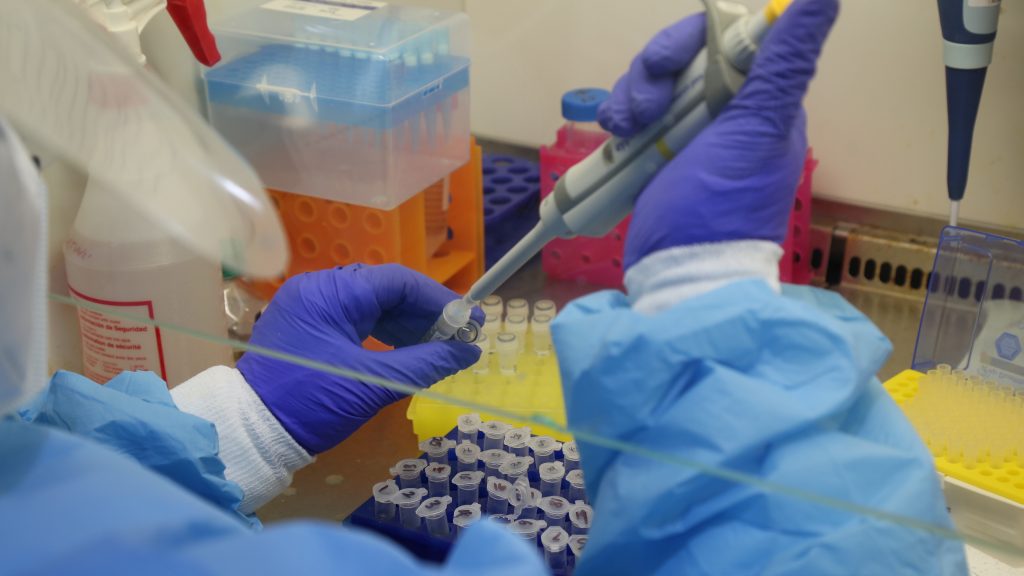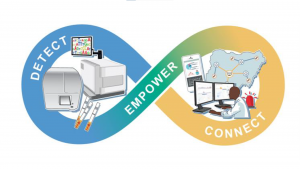
ACEGID conducts multidisciplinary research using genomic technologies to study the ecology, evolution, and transmission of infectious diseases. We take a One Health approach, which means that we believe that human, animal, and environmental health are interconnected. We deploy cutting-edge technology to improve the understanding, prevention, and control of infectious diseases that affect humans, animals, and the environment.
We use a variety of genomic techniques, including whole genome sequencing, metagenomics, transcriptomics, proteomics and bioinformatics to identify and characterize pathogens, track the spread of diseases, and develop new diagnostics and treatments. We work with partners in the public health, veterinary, and environmental health sectors to provide evidence that informs public health policies.
Below are highlights of some of our past and ongoing research projects:
A Social-Ecological Network approach to understanding Zoonotic Outbreak Risk (SENZOR) (2023 – 2027)
SENZOR aims to provide an understanding of zoonotic outbreak risks by undertaking a study of local infection dynamics. The project will collect samples from small-bodied wild animals, domestic animals and humans in a systematic, structured sampling regime in two landscape types (highly agricultural and semi-natural) over three years in The Gambia and Nigeria. Contact networks of local actors involved in transmission will be built for high-risk viral pathogens. Participatory modelling and ethnographic methods will be used to gain deeper insight into how humans interact with these networks. The project will use a socio-ecological systems modelling approach to predict risks across the landscapes and in plausible future scenarios to inform outbreak preparedness and management strategies.
The GIZ Urban Bushmeat Project (2022 – 2024)
As more infectious diseases emerge and re-emerge from animals to humans, it has become necessary to understand the impact of bushmeat hunting, handling and consumption on public health, especially in densely populated urban areas. The study aims to map the bushmeat value chain in Lagos and identify its governance, the actors involved and their practices using qualitative data from key informants’ interviews. Molecular and genomics tools will be used to identify and quantify zoonotic pathogens from bushmeat sampled along the different nodes of the value chain, providing a basis to estimate the risk of human exposure to zoonotic pathogens. This project is conducted in partnership with the One Health Centre in Africa at ILRI (Kenya) and Wageningen University and Research (the Netherlands). The study is supported by GIZ through the International Alliance against Health Risks in Wildlife Trade.
Combatting Antimicrobial Resistance in Africa Using Data Science (CAMRA) (2021 – 2026)
CAMRA is an NIH-funded data science-based research on antimicrobial resistance in bacteria. The project is using advanced data analysis and artificial intelligence to elucidate trends in the spread of antimicrobial resistance, develop portable, rapid diagnostic tests for bacterial infection and test a potential drug for multi-drug resistant bacteria. The project is part of NIH’s Harnessing Data Science for Health Discovery and Innovation in Africa (DS-I Africa) program.
Sentinel Audacious Project (2020 – 2025)
ACEGID is working with the Broad Institute and other partners to develop Sentinel, an early warning and response system that detects viral threats in real time, connect this information in real-time to public health institutes and empower frontline health care workers. Thus, allowing the global community to stop infectious diseases before they spread. The system is built on three pillars viz: Detect, Connect and Empower.

ACE Impact (2020 – 2024)
Following outstanding successes recorded by the centre in the ACE II programme, ACEGID was positively reviewed by the World Bank’s ACE team, and our request for a renewal of the ACE project was granted. This birthed the ACE Impact project. Through ACE Impact, ACEGID is poised to scale up its training and outreach programmes for more impact by building the capacity of public health institutions in West African countries in using cutting-edge scientific approaches to find solutions for infectious disease diagnosis, management, outbreak preparedness and response.
Under this project, we will enhance and expand our in-person genomics training such that our graduates can use the materials they access in the training to conduct courses in their home countries. We will also expand our postgraduate programs by developing two new programmes in bioinformatics with applications to infectious diseases, as well as develop a massive open online course on the genomics of infectious diseases.
Genomic Characterization and Surveillance of Microbial Threats in West Africa (2017 – 2022)
With funding from Human Heredity and Health in Africa (H3Africa) and the United States National Institute of Health, this US$5.8 Million collaborative research project between ACEGID and our long-term partners is working to identify and characterize viral pathogens in West Africa. This characterization will enhance pathogen surveillance efforts and the development of diagnostic tools, serum-based surveillance test kits and better understanding of the pathogen-host interaction for the diseases. At the core of H3Africa is training of the next generation of African researchers who are capable of conducting independent genomics research projects.
ACEGID’s partners for the project include Irrua Specialist Teaching Hospital, Irrua (Nigeria), Kenema Government Hospital, Kenema (Sierra Leone), Université Cheikh Anta Diop (Senegal), The Broad Institute, Harvard University and Tulane University (USA).
JWARG Surveillance, Detection, Risks and Consequences of Severe Infectious Disease in West Africa (2017-2022)
ACEGID is working in partnership with the Joint West Africa Research Group (JWARG), led by the Walter Reed Army Institute of Research. The JWARG project seeks to prepare for and prevent future infectious disease epidemics by establishing coordinated systems to rapidly detect and respond to a wide range of human pathogens at the earliest possible stages.
ACEGID is responsible for the research administration, study planning and preparation, protocol development, laboratory and study team preparation, patient enrolment, sample collection and laboratory testing, and institution of quality assurance procedures for clinical data, laboratory results and adherence to international regulations guiding research on human subjects.
CEPI Lassa Fever Epidemiology Study in Nigeria (2017 – 2023)
ACEGID is one of the members of the Nigeria Lassa Research Consortium, which comprises of eight academic, health, research and policy institutions in Nigeria, Germany and the United States. The epidemiology study, funded by Coalition for Epidemic Preparedness Innovations (CEPI), is being conducted as preparation for the trials of safe, effective and affordable vaccines for Lassa Fever. It involves collection of incidence data, improving case definitions and identifying useful clinical endpoints. ACEGID is responsible for capacity building and leading the project’s sequencing effort.
One Health and Accelerating Vaccines for Ebola and Lassa (OVEL) (2018 – 2021)
The OVEL project is a collaboration between the University of Cambridge and ACEGID to enhance the development and testing of vaccines for Ebola and Lassa fevers. This is done by correlating the viral genome in the natural reservoir and in human hosts to have complete information about the variation and diversity of the virus. This knowledge is being used to develop a comprehensive vaccine for the prevention of the two diseases.
Malaria Projects
In partnership with the National Malaria Elimination Program, the World Health Organization, US President’s Malaria Initiative and other partners, ACEGID executes several projects on the surveillance and characterization of malaria pathogens in circulation within Nigeria. We are also responsible for the genomic evaluation of the efficacy of antimalarial drugs deployed to control malaria in the country.
African Centre of Excellence for Genomics of Infectious Diseases (2013 – 2019)
The project aimed at establishing at Redeemer’s University, an African Centre of Excellence that is devoted to the genomics of infectious diseases. The World Bank funded the project with US$ 8 million. One of ACEGID’s mandates was to apply the knowledge of genomics to addressing issues of infectious diseases in Africa. ACEGID worked to develop a critical mass of well-trained African scientists who use genomics to address African health problems. ACEGID established Africa’s first postgraduate curriculum in genomics of infectious diseases in Nigeria.
Genomic Characterization of Acute Febrile Illness in West Africa (2013 – 2017)
With funding from the United States National Institutes of Health (NIH), this project uses genomics tools to identify pathogens that cause fevers in the West African region with the plan to acquire adequate knowledge of the landscape of pathogens in the region. This knowledge will be used to develop diagnostic tools that can detect pathogens in a single reaction.